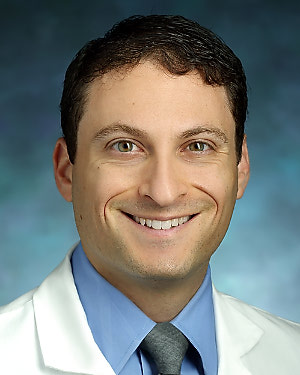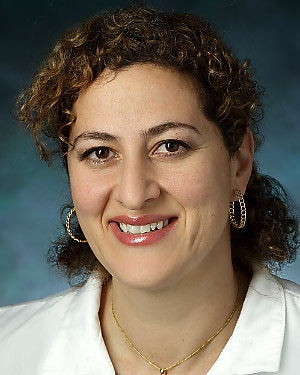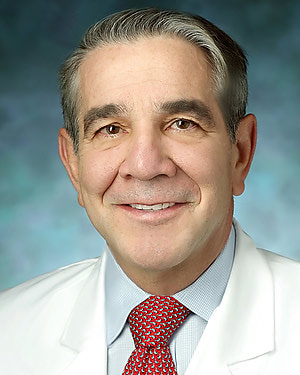Conditions We Treat: Ureteropelvic Junction Obstruction
Ureteropelvic junction (UPJ) obstruction occurs when the area where the ureter and kidney meet becomes blocked by scar tissue, kinking, a blood vessel or, more rarely, a tumor. This can harm kidney function and lead to flank pain on the affected side, especially after drinking alcohol, coffee or other fluids.
UPJ obstruction can be congenital (present from birth), but some people develop it over time or after experiencing kidney stones, surgery or trauma.
Request An Appointment Request An Appointment
Schedule by phone
Adults: 410-955-6100
Pediatrics: 410-955-6108
Ureteropelvic Junction Obstruction: Why Choose Johns Hopkins
- Whenever possible, we recommend laparoscopic or other less invasive techniques to clear the blockage. This can provide patients with less pain and scarring and a faster recovery compared with traditional open surgery.
- Our surgeons are highly trained and have extensive experience evaluating and treating even the most complex conditions affecting the kidneys and urinary tract, including treating UPJ obstruction for patients whose prior surgical repair has failed.
- Our surgeons pioneered robotic and minimally invasive surgical techniques for treatment of UPJ obstruction.
Ureteropelvic Junction Obstruction Experts
One of our experts in UPJ obstruction will meet with you to develop an effective, individualized treatment plan.
Treatment for Ureteropelvic Junction Obstruction
After reviewing your medical history and results from imaging scans and blood and urine tests, your surgeon will discuss treatment options with you and answer any questions you may have.
Most patients are good candidates for a minimally invasive surgical approach called laparoscopic pyeloplasty, which is usually performed with robotic assistance. During the procedure, your surgeon will use small instruments to repair the obstruction through three keyhole incisions. This approach typically requires a shorter hospital stay than open surgery, and allows patients to return to daily activities sooner.



